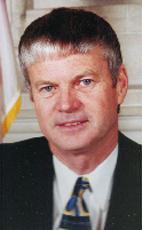Mr. Speaker, the hon. member is very familiar with the beef industry and I respect his comments and his question. I know he is not going to have a chance to respond but my guess is that if that cow had been in the United States, many hon. members in this chamber would have said, “They have BSE, we don't”, and they would suggest that we follow the guidelines of the OIE.
The OIE has guidelines for different levels, minimal risk, different levels. Other countries are following those guidelines. However, many of those countries are saying that because of the system we have here, because of the strategy that the CFIA, Agriculture Canada and international trade, Health Canada and everyone has put in place, we have successfully had the borders opened to some extent. It is a big step but we have a long way to go.
Let us take advantage of what we have and the system that we have which is recognized throughout the world. Remember, the international body said that no other country in the world has ever moved as quickly, as competently and as thoroughly in addressing, assessing and seeking to see what the level was. No other country in the world has moved and moved as quickly as Canada has done. Our officials worked night and day. Our industry worked night and day. All Canadians need to be given thanks, and I know everyone does, for what has been done so far. But they too know that our job is not done.

